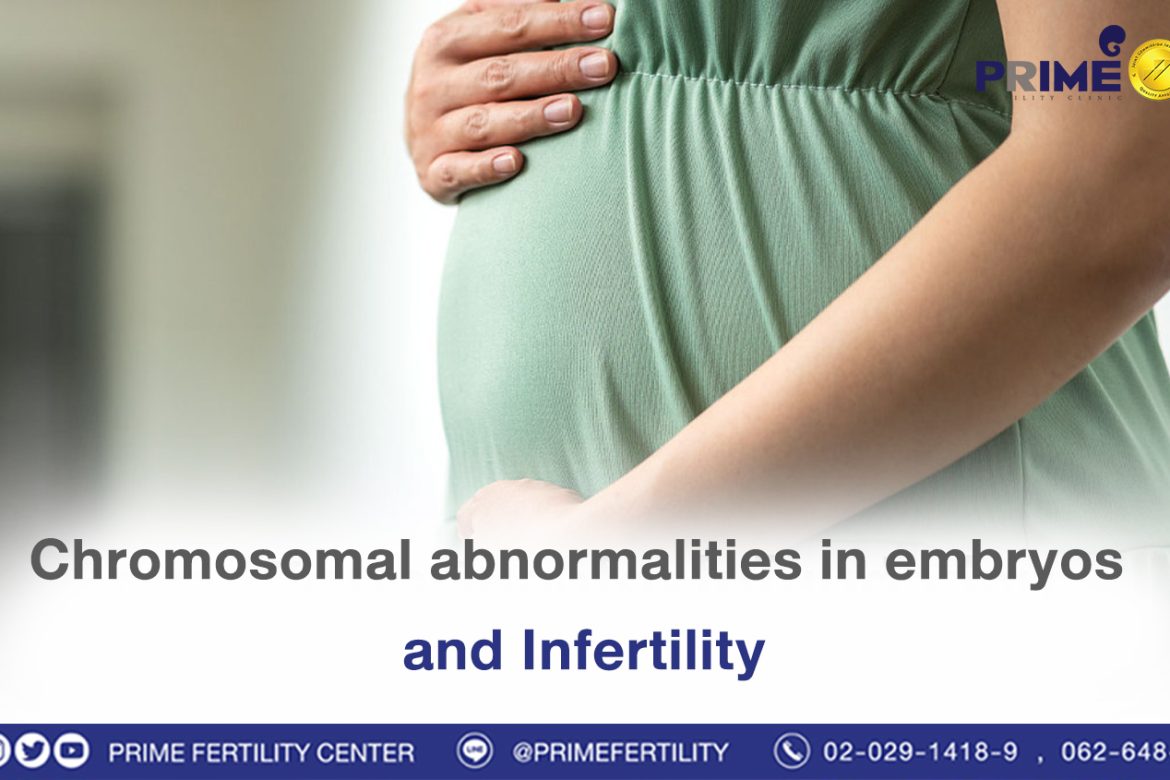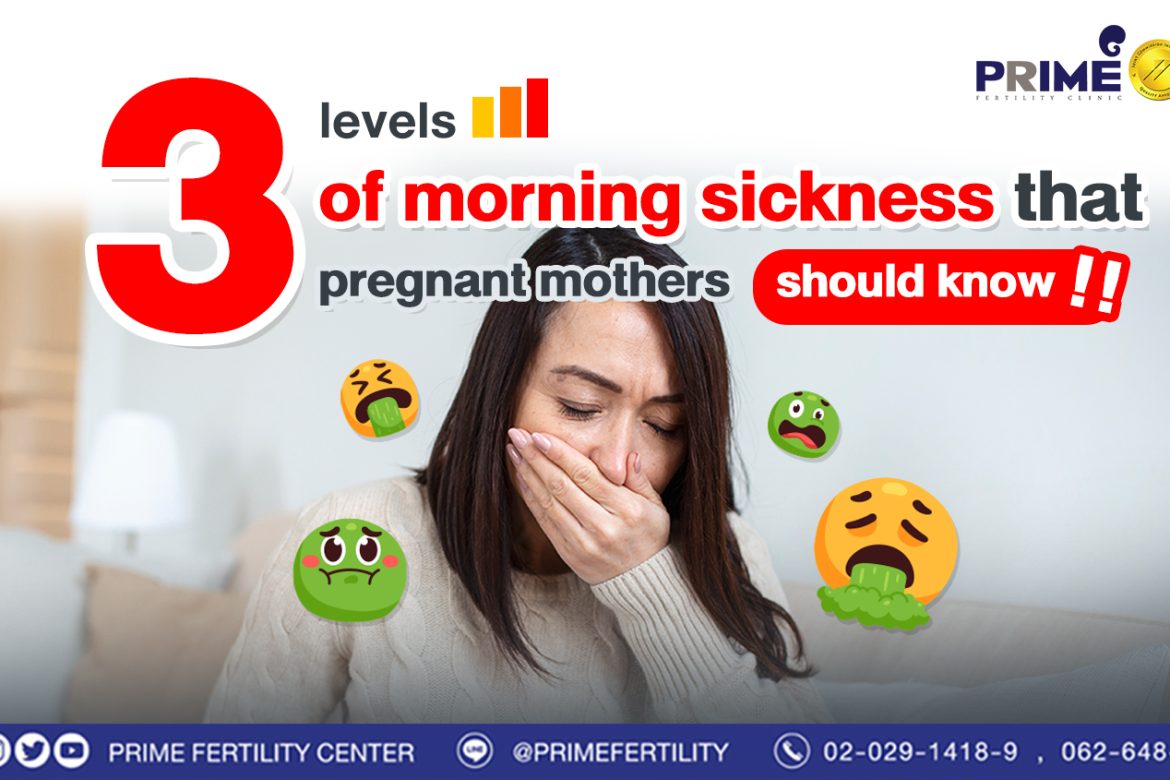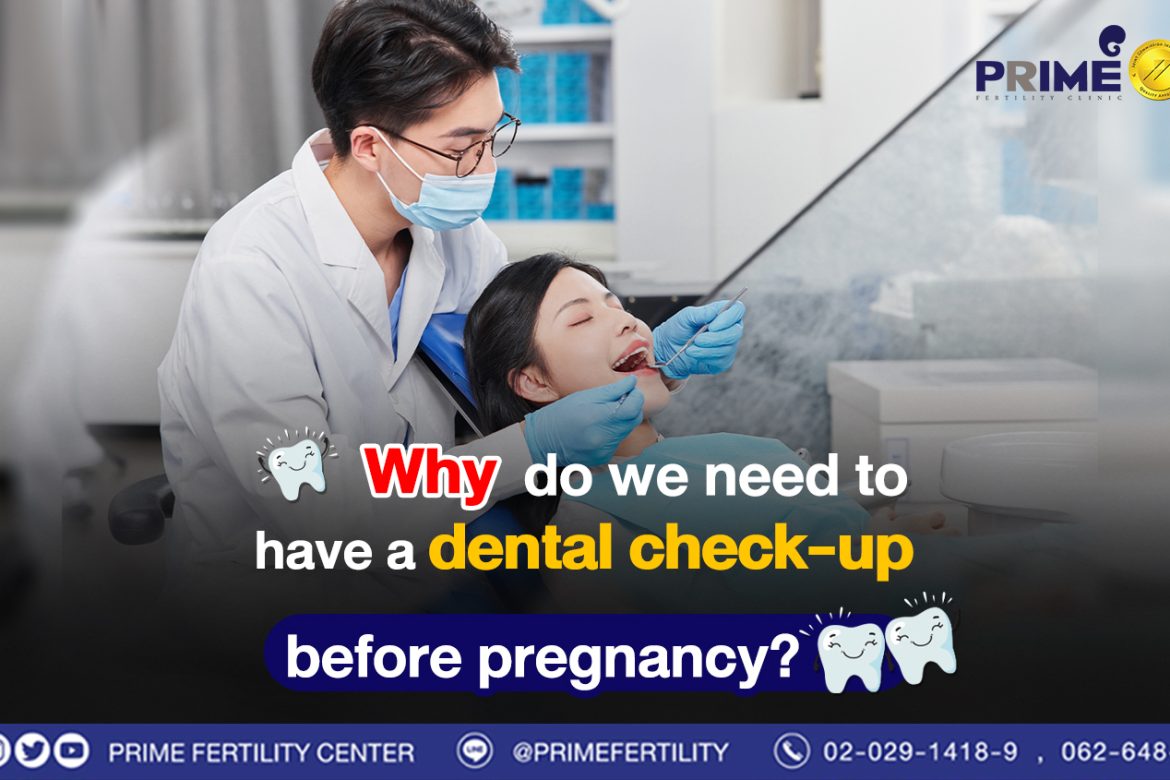Get to know 4 types of chromosomal abnormalities in embryos and infertility. Who is suitable for the treatment?

Today, infertility in women can be caused by many reasons. Whether it is a change in hormone levels, genetic disorders, ovulation disorders, or even problems with changes in the structure of the reproductive system. Including many other factors that are at risk for infertility, such as age, weight, medical history, and sexually transmitted diseases, etc. Today we will talk about chromosomal abnormalities in the embryo and infertility. How are they related? Let’s go find the answer together.
Technology used to detect chromosomal abnormalities in embryos and infertility. Who should proceed with genetic testing?
For the steps to detect chromosomal abnormalities in the embryo, it will be one of the processes in IVF, ICSI to prevent and reduce risks related to infertility. Increase your chances of getting pregnant. And reduce the risk of chromosomal abnormalities in the embryo. Those who are suitable for embryo chromosome testing are as follows:
- Female aged 35 years and over
- People with a history of pregnancy with chromosomal abnormalities in the babies.
- People with a history of miscarriage before 12 weeks of pregnancy
- People who have been diagnosed with miscarriage occurs due to chromosomal abnormalities.
- People who have had IVF treatment before but were not successful.
- People with a family history of chromosomal abnormalities
To increase the chance of having a quality pregnancy, technology will be selected to analyze chromosomal abnormalities in the embryo as follows:
- Preimplantation Genetic Testing (PGT)
It is a technology that diagnoses genetic abnormalities in embryos caused by abnormalities in the number of chromosomes and/or genes specific to certain diseases. It is performed before the embryo is transferred into the uterine cavity. This is important in reducing the risk of genetic abnormalities in the baby.
- Next-generation sequencing (NGS)
It is a technology used to check the number of extra or missing chromosomes in order to reduce the problem of failed implantation leading to a miscarriage occurs in the first three months of pregnancy or the risk of congenital anomalies in the baby. NGS technology can detect chromosomal abnormalities covering all 24 chromosomes with high accuracy. It has the lowest error rate compared to other technologies, making it a popular technology to use. Because it is highly effective including showing the test results quickly within 3-5 days.
4 types of chromosomal abnormalities in embryos that cause infertility
Next, we will talk about genetic factors that affect fertility. This may be due to genetic changes from the parents or from other causes that are different. Chromosomal abnormalities in embryos that cause infertility include
- Turner Syndrome
It is an abnormality caused by a woman having part of the number of X chromosomes missing or missing 1 of them. It may be caused by a problem with sperm or eggs and may occur when the child is still a fetus. It is another abnormality that can cause infertility.
- Fragile X Syndrome
It is an abnormality caused by women having incomplete and fragile X chromosomes that put them at risk of premature ovarian failure which causes infertility. This condition usually occurs in women under 40 years of age. In addition to causing infertility, there is also a risk that the child will be born with intellectual disabilities.
- Congenital Adrenal Hyperplasia
It is an abnormality caused by genetics. Affects both females and males. For female, it creates a hormonal imbalance in the body. This will cause the menstrual cycle to change leading to infertility.
- Chromosome Rearrangement
It is an abnormality when a woman has an abnormal arrangement of chromosomes. It affects the ability to conceive, causing infertility, the risk of miscarriage, congenital anomalies, or intellectual disabilities in a baby.
Prime Fertility Center, we are an infertility treatment clinic. Providing consultation and infertility treatment to help prepare the best pregnancy plan for people who want to have babies.
This is knowledge about chromosomal abnormalities in the embryo and infertility that we introduce today. If you are a woman or couple who wants to have children but are experiencing problems with infertility that makes it difficult to have children including not being able to plan for pregnancy, it is recommended to receive counseling from Prime Fertility Center. The clinic specialized in infertility treatment. Choose the latest and most advanced treatment technology which is certified by international standards, including safety standards like ISO 15189 and ISO 15190. Control and supervise the treatment carefully in every step by fertility specialist to detect the risk of chromosomal abnormalities. The treatment really shows effective results and there is a reasonable price. According to our performance, women can confidently conceive without worry. We are providing the best health and quality of life for their unborn child.
Should you be interested in getting fertility consultation, please contact us. | ICSI Bangkok | ICSI Thailand | fertility clinic bangkok
Tel. : 062-648-6688 / 062-648-8866 / 02-029-1418–9
Line : @primefertility
Facebook : Prime Fertility Center
E-mail : info@primefertilitycenter.com



